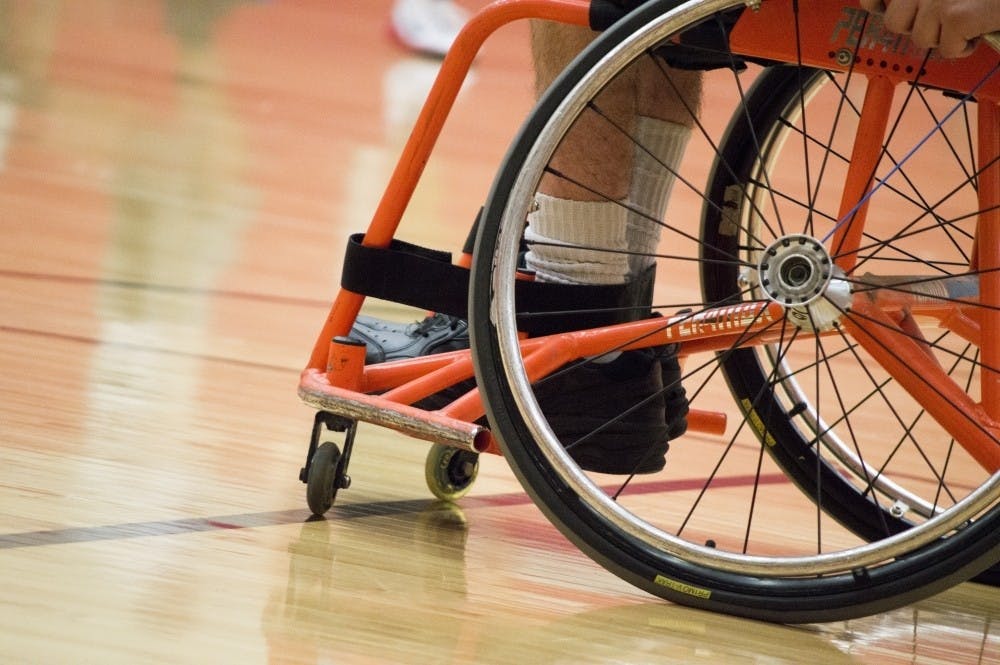Students go to college assuming they will earn a degree that will make them employable, but for people with physical disabilities that’s not always the case.
Around 18 percent of people with physical disabilities are employed, according to the Bureau of Labor Statistics. Of people without disabilities, around 94 percent of people are employed.
“Here’s the thing, college graduates with disabilities already have the degree," said Larry Markle, director of Disability Services. "They meet the minimum qualifications for these jobs. We’re not creating work for these folks, these are people who are qualified. But for some reason there’s still a lag for employment for people with disabilities."
The Disability Project, which is centered on a need for employment for people with physical disabilities, was awarded a three-year Academic Excellence Grant of around $250,000 from the university.
The project places students in paid internships and educates Indiana employers on hiring qualified people with physical disabilities. It goes live in January 2016.
Funding will employ a full-time person in the career center to work with students with disabilities, educate employers on employing people with disabilities and continue giving them internships.
Alum Greg Fehribach started running the project six year ago, and he works with Markle on it.
Fehribach has Osteogenesis Imperfecta, which means “brittle bones.” He said he wanted to leave a legacy for other people with physical disabilities.
“There were never other professionals with disabilities around the corporate tables or involved in the civic discussions, just me," Fehribach said. "I started to think, if I retire or if, God forbid, something happen to me, there was no bench. We needed to change that so people with disabilities can be community leaders."
Eskenazi Health first partnered with the project three years ago to host an internship for junior chemistry major Matt Marshall, who uses a manual wheelchair. Marshall’s first internship involved providing feedback on accessibility for a hospital Eskenazi was building.
“In a patients room, the gloves are placed in a back corner and rather high up," Marshall said. "I never anticipated that would be a challenge for me, something so fundamental to patient care as gloves."
After Marshall’s first internship, Eskenazi requested more interns—including Marshall, who has had three internships. Now the project also partners with the City of Indianapolis and Emmis Communications, as stated in the Disability Project brochure.
The project is a civil rights movement and is a matter of equality, Fehribach said. He compared it to the disadvantages women face in the work force.
“I am 100 percent certain in the inequality," he said. "We know women are paid less, significantly less. We know women [have] a hard time getting sustainable employment. So getting a mortgage for a house, spending a little extra money on a nice bottle of wine is harder just because a person happens to be a woman. Well, people with disabilities are so much further down the road, and we already know women are behind."





